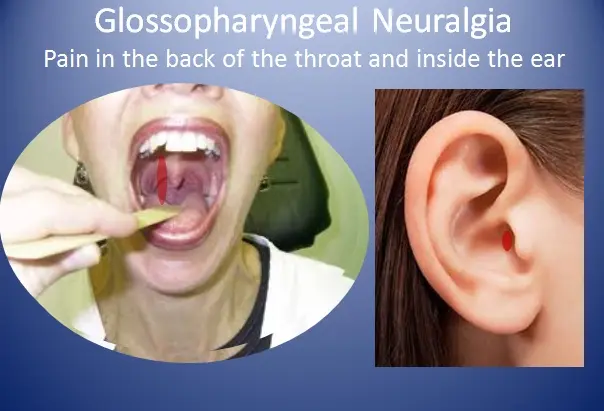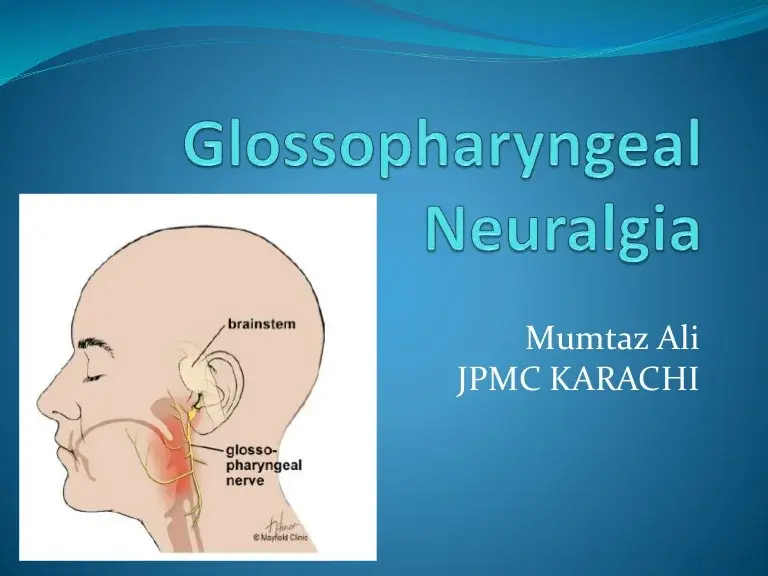Can Glossopharyngeal Neuralgia be Cured?
Sometimes
Management aims to control pain and improve quality of life; outcomes vary, and individuals may experience periods of remission or require ongoing treatment; addressing the underlying cause, such as nerve compression, is crucial for effective management

What is Glossopharyngeal Neuralgia?
Glossopharyngeal neuralgia is a rare condition causing severe, stabbing pain in the throat or near the tonsils. Medications and, in some cases, surgery may be used to manage symptoms.

Clinical Aspects

Characteristics
Rare neurological condition characterized by recurrent, severe pain in the back of the throat, tongue, and ear

Symptoms
Sharp, stabbing pain in the throat, tongue, ear, triggered by swallowing or speaking

Diagnosis
Clinical evaluation, imaging

Prognosis
Variable, depends on treatment response

Complications
Impaired quality of life, potential for complications
Etiology and Treatment

Causes
Compression or irritation of the glossopharyngeal nerve

Treatments
Anticonvulsant medications, tricyclic antidepressants, nerve blocks

Prevention
Anticonvulsant medications, tricyclic antidepressants, nerve blocks
Public Health and Patient Perspectives

Epidemiology
Rare, severe facial pain condition

Patient Perspectives
Individualized treatment based on response
Remember, the information provided here is intended for general knowledge purposes and may not apply to every individual case. To ensure you have accurate information relevant to your specific situation, always consult with a healthcare professional.
Share: